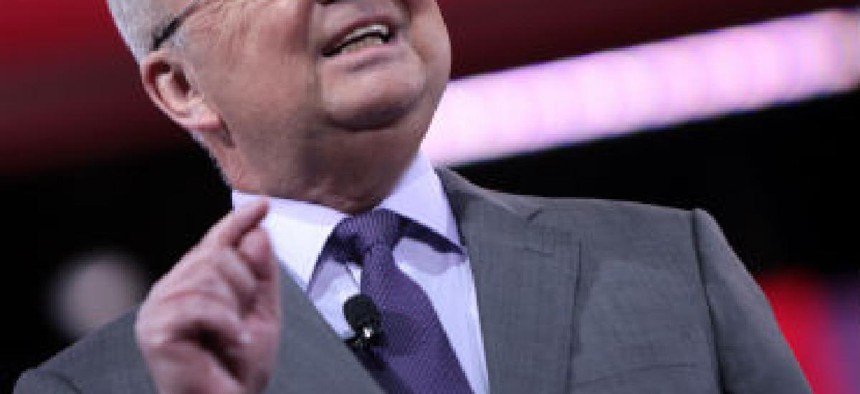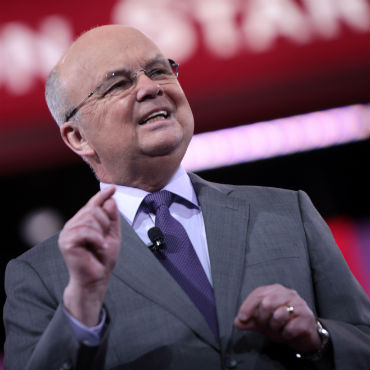Hayden calls Russian email hack 'honorable state espionage'

The former CIA and NSA director discusses Russia's recent hacks of Democratic party emails, as well as Apple's stand against the FBI over encryption.

Former spymaster Gen. Michael Hayden (Ret.) said that attempts by rivals to hacks into political targets was all in the game of nation-state espionage.
Michael Hayden, a former director of both the CIA and the National Security Agency, thinks Russia’s actions involving a Democratic party email leak were fair play.
“I have to admit my definition of what the Russians did is, unfortunately, honorable state espionage,” Hayden, now a principal at the Chertoff Group, told an Oct. 18 audience at The Heritage Foundation. “A foreign intelligence service getting the internal emails of a major political party in a major foreign adversary? Game on. I would not want to be in an American court of law and be forced to deny that I never did anything like that as director of the NSA.”
The Department of Homeland Security and the Office of the Director of National Intelligence issued a joint statement earlier this month that condemned Russia for the attacks. "These thefts and disclosures are intended to interfere with the U.S. election process," the statement asserted. "We believe, based on the scope and sensitivity of these efforts, that only Russia's senior-most officials could have authorized these activities.”
It could be argued Russia has gone beyond espionage and has mounted an influence campaign targeting the presidential race. But Hayden said that’s not how he sees it.
“I think they’re doing it to mess with our heads, to erode confidence in our political process,” he said of Russia. “I think they’re doing it because [Putin is] convinced we do this to him all the time. We don’t.”
His suggestion for dealing with the cyberthreat from Russia is to contextualize it within the broader conversation of foreign policy.
“Do not drop this in the cyber problem box, drop this in the Russia problem box,” Hayden suggested, saying the focus should be on the actor, not the means. “And by the way, that Russian problem box needs a bigger box, there’s a lot of stuff going on.”
Hayden also spoke about the relationship between the public and private sector with regards to cybersecurity. It's a space where private industry is and should continue to lead the way, he said. His advice for the next administration was simple: Get out of the way.
Though there are aspects of cybersecurity that only government can handle, most of it will be driven by the private industry, Hayden said. Government can help the private sector by getting out of the way -- removing liability, enabling legal protections, sharing information and redoing the classification system.
And since the government too depends on the private sector for security innovation, Hayden said he sides with Apple regarding whether the company should have to create a back door for the FBI to bypass iPhone encryption.
“One needs to be careful about how hard we make Tim Cook’s life,” he said. Government needs to use private-sector encryption, and putting in a back door will only make the technology less secure, he said.
Hayden argued against the notion that stronger encryption would keep important information from the intelligence community. The cellphone he pulled from his pocket, Hayden said, is always creating “digital exhaust. ... If one’s clever, it does create actionable intelligence.”
This article first appeared on GCN, a sister site to FCW.
NEXT STORY: States continue to seek cyber help from DHS


